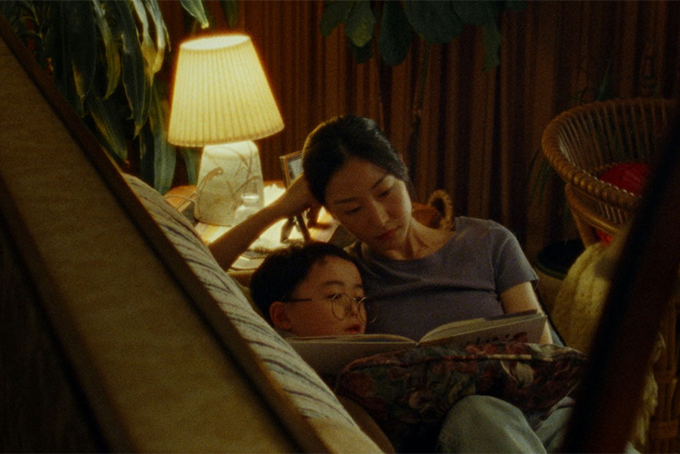Warning: This article contains spoilers for the film.
Awarded the Platform Prize at the Toronto International Film Festival and the Flash Forward Audience Award at the Busan International Film Festival, Riceboy Sleeps follows single mother So-young (Choi Seung-yoon) as she moves to Canada in the year 1990, seeking a better life for her young son Dong-hyun (Ethan Hwang, Do-hyun Noel Hwang) after her husband’s suicide. Director and writer Anthony Shim, whose own experiences growing up as a Korean person in Canada inspired the film, creates a quiet but poignant coming-of-age story that feels authentic and lived-in.
On Dong-hyun’s first day of school, his teacher hands So-young a list of anglicised names. “I personally like David best,” she suggests. Still, his classmates refer to him as ‘Riceboy’ as they bully him at the playground. When he retaliates, school authorities regard him as the problem. In the meantime, So-young, who has found work in a factory, is mostly ignored by her white colleagues. It is when mother and son are together that we see most clearly how each other are all they really have.

But as the film shifts almost a decade into the future, we see a teenage Dong-hyun with bleached hair and blue contact lenses—a rejection, as best he can, of the things that identify him as Korean on the surface. So-young fares better at work, finding community in a group of fellow immigrant women at the factory, but at home, arguments around the dinner table take on a painfully recognisable turn. As Dong-hyun grows increasingly distant and So-young struggles to put into words what she wants to express to her son, the frustration simmers between them, hitting a little too close to home for those of us who have gone through the rocky teenage years of unending miscommunication with our parents.
There’s a lot in Riceboy Sleeps that feels intimately familiar, whether it is from personal experience growing up in an Asian household, stories shared by friends from immigrant families or similar narratives that have been told before on screen. Certain scenes could be at risk of falling into cliché, if not for the film’s earnest writing, thoughtful cinematography and impressive performances. In a heartbreaking turn of events, So-young receives news of an unexpected cancer diagnosis that could, in any other movie, elicit an eye-roll. But as she solemnly flips through a dictionary to grasp the weight of the information being conveyed to her, the impact is nothing short of crushing.

Food, in particular, becomes an easily identifiable marker of growth and change. It is a beacon of otherness as a young Dong-hyun empties his packed lunch of kimchi and kimbap into the trash after being mocked by his classmates. We see a hint of reluctance when So-young later offers to let him sample the kimchi she is making in their kitchen. He eventually agrees, assisting her as she flies aeroplanes of kimchi into his mouth—only to quietly ask her in the next scene if she can pack him the type of lunch that everybody else in class eats.
But just as much as food is something that can isolate, it can also bring a family together. In their toughest moments, So-young shows her love by adding expensive seafood to a home-cooked meal—and even a simple bowl of rice can tie Dong-hyun back to his roots.

At its core, Riceboy Sleeps is a tender portrait of a Korean-Canadian family. With warmth and sincerity, Shim captures the imperfect, messy lives of a mother and son, along with the love, understanding, pain and sacrifice that blooms between them. The film’s simplicity belies a story that is softly devastating but always compassionate—anchored by a bond between parent and child that, for all its ups and downs, is unyielding.
Watch Riceboy Sleeps at The Projector now.





